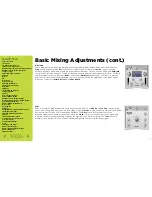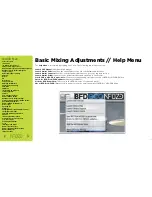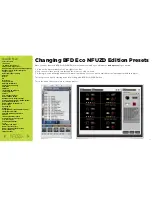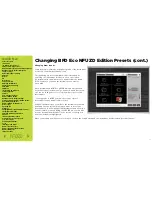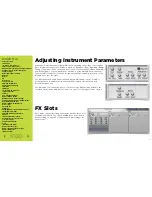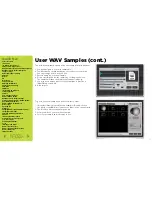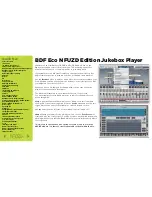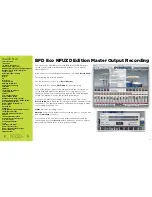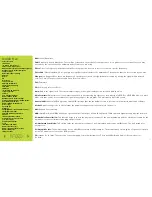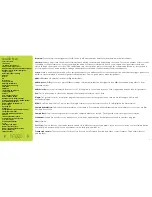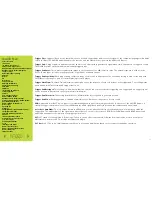
Quick Nav
Table of Contents
Introduction
I/O Module Panel Layouts
Snare and Tom Trigger Zones
NFUZD USB Key (Drive) and Data Management
NSPIRE Series I/O Module Navigation
Trigger Settings
Hi-Hat (HH) Trigger Settings
Kit Menu
Reverb
EQ
Mixer Menu
Saving a UserKit
Adjusting the MIDI Map
Trigger Function Settings
Click Menu
SEQ Menu
Integration with Computer
Setup Suggestions
Sync Key
Auto O
ff
and Sleep Mode
BFD Eco NFUZD Edition
NSPIRE Series I/O Module Settings
Getting Started w/ BFD Eco NFUZD Edition
Basic Mixing Adjustments
BFD Eco NFUZD Edition E
ff
ects
Grooves Page
Options Menu
Help Menu
Changing BFD Eco NFUZD Edition Presets
Changing Drum Sounds
Adjusting Instrument Parameters
FX Slots
Instrument and Mixer Faders
Getting New Professional Sounds
User .wav Samples
Exporting Sound Banks
Loops
Installing Sound Banks
BFD Eco Jukebox Player
BFD Eco Master Output Recording
BFD Eco Mixing Tips
Included Sounds
Adjusting Instrument Parameters
Instrument Adjustments are slightly di
ff
erent depending on the type of instrument.
Each instrument channel will include controls for Dynamics (Dyn), Damping (Damp),
Tuning (Tune) Aux 1 and 2 sends and level control for that channel’s Over Head (OH)
and Room signals. You can also flip the Ambience of the OH and Room channels.
That is useful if you want to take an instrument that was originally recorded on the
left and move it to the right.
The Bass Drum and Snare Drum channels feature a blending control. For BD it
blends between In and Out microphones. On SD it blends between Top and
Bottom Microphones.
The OH and Room channels give you control over the Distance and Width of the
recorded tracks in the Ambience section. You can also send signal to Aux 1 and 2.
5 4
FX Slots
Each mixer channel, including the master, features three slots
for additional e
ff
ects. The e
ff
ects available are described in
detail starting on page 45 of this manual. EQ will always be
the first slot.








